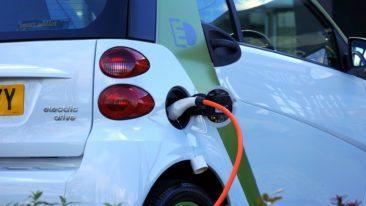By Akhil Aryan
The worldwide energy depletion crisis and the ongoing climate change calls for an immediate global transition to renewable energy alternatives such as the EV technology. The Indian government has recently announced its plan to build an EV charging station after every three km in its bid to realize its dream of ushering an all-electric transition by the year 2030. These are constructive steps undertaken by the government policymakers and the automobile sector in order to steer a nationwide shift to the EV technology.
Since no individual can bring about such a massive change on their own, it is up to the key stakeholders of the EV ecosystem such as the government, the automobile industry and EV mobility fleet owners to bring about such a massive paradigm shift from traditional modes of mobility to the unconventional.
The automobile sector can initiate this transitional process through the following ways:
- The auto industry should institute technologies that improve battery life and performance, decrease the overall ownership cost, optimize other peripheral costs and help gain better ROI.
- The government should ensure standardization for the battery charging infrastructure and the battery swapping mechanism in order to create a uniform EV ecosystem
- Local production of essential EV components is much needed in order to tackle the otherwise massive import costs.
- To create an environment that allows for a greater adoption of the battery swapping technology as it cuts down the waiting period for charging, diminishes the size and volume of car batteries and provide a high available run-time.
Presently the latest technological developments such as Data sciences, AI and the internet of things (IoT) are delivering disruptive breakthroughs in the EV sector by building the foundation stone for an all-electric future. These futuristic technologies will aid in determining and improving the battery life and performance. This helps in bringing down the overall cost of usage and decreases the reliance on energy derived from coal gas and petroleum – non-renewable sources.
Startups too, can play an esteemed role in contributing towards the mass adoption of the EV technology by creating an enriched EV ecosystem in the following manner
- The automobile giants in the country can work along with startups that are accelerating the EV transition, to boost nationwide EV adoption.
- EV fleet operators and startups should inculcate data analytics within their processes as it is the next big thing in terms of improving and maximizing the growth output of any industry. The data obtained can be assessed for identifying possible anomalies and errors beforehand and therefore initiating preemptive measures and preventive preservation. Data analytics helps in approximating the present energy consumption levels; ascertaining future demands and the grid load during peak hours and recharge patterns.
As discussed previously, such an enormous shift in the way we see and interpret energy usage can only be brought forth through proactive measures on the part of the government; there are a few measures that the government must undertake to ensure nationwide permeation of the EV model. These are listed below:
- Provide incentives for the localized development and adoption of EVs
- Since India makes up for one of the largest three-wheeler markets in the world with over 0.6 million units sold in the year 2017, it is extremely important to integrate electric rickshaws in the urban electric mobility vision.
- In accordance with the contemporary need and the available infrastructure, the government ought to set up at least 20 Gigafactories to produce batteries locally.
- The specifications on the AC and DC chargers must serve open models of standardization.
- The government should provide further monetary impetuses that promote R&D for OEMs in order to bring down the production costs and strengthen economic efficiency.
- The governments at both the centre and state levels and Public Sector Units should aim to substitute their existing fleets with EVs.
- The government should carve specialized lanes and reserve parking spots for EVs
- The government should seek to prolong its GST cut for EVs at least till the year 2030.
- The government should ensure a mass retrofit policy for the obsolete ICEs as the country moves forward towards achieving all-electric mobility.
- The government must draft a direct policy that addresses the eco-friendly disposal of batteries that past their economic lifespan.
Therefore it is up to the government and other key stakeholders to draft such EV friendly policies that will help realize India’s vision of becoming an all-electric EV hub by the year 2030 and in the same context, walk shoulder to shoulder with the rest of the progressive and developed world economies.
